Understanding the Role of Recovery Coaching in Adult Mental Well-Being
Managing stress is a vital component of maintaining mental health and supporting recovery from addiction or behavioral challenges. Recovery coaching emerges as a personalized, peer-based support system that empowers adults to develop practical skills, build resilience, and achieve long-term stability. This article explores how recovery coaching supports stress reduction, enhances emotional regulation, and promotes overall mental wellness, emphasizing its unique principles, processes, and benefits.
What Is Recovery Coaching and How It Supports Stress and Mental Health
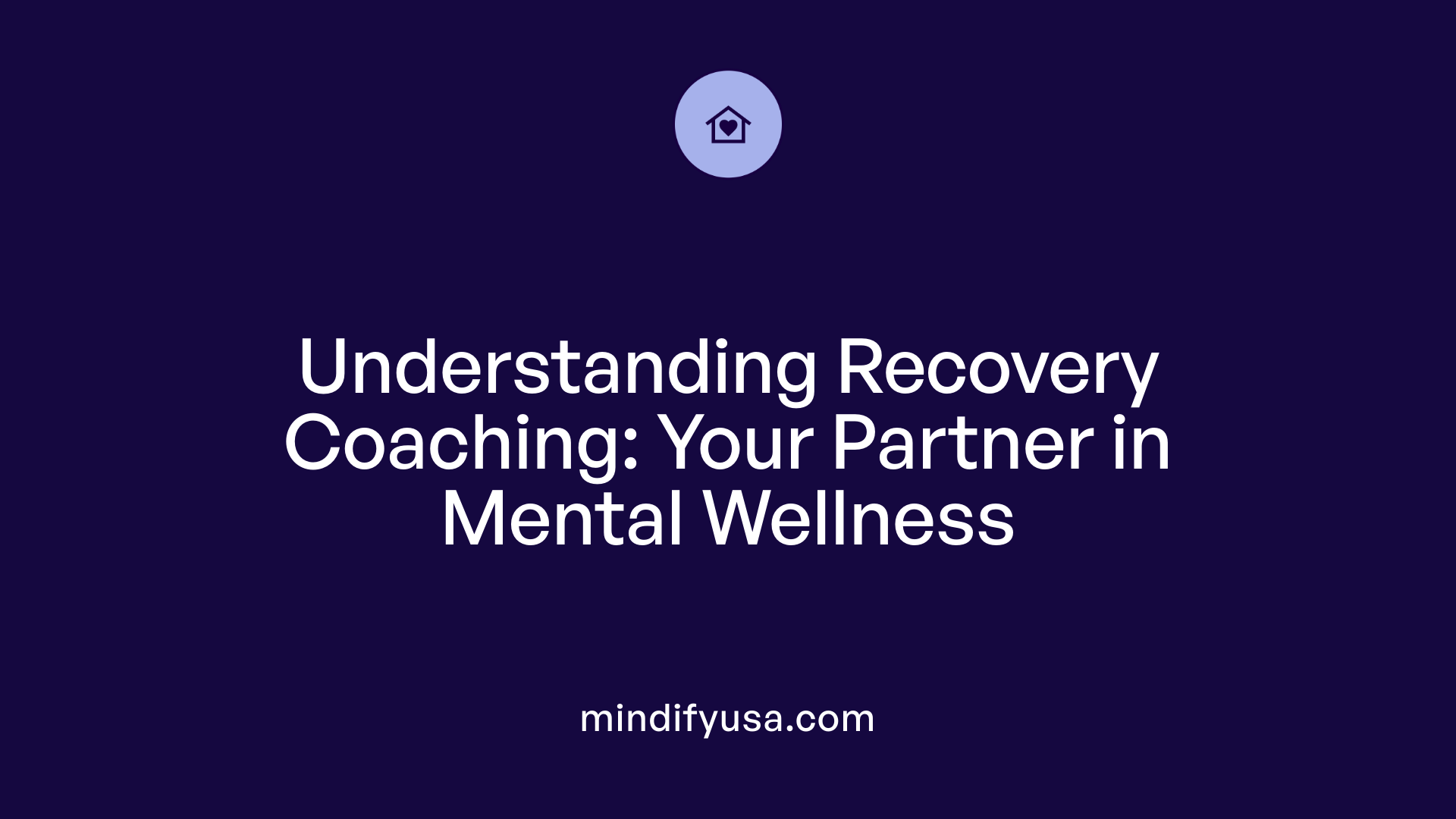
What is recovery coaching and how does it support adults in managing stress and mental health?
Recovery coaching is a personalized, peer-based support service designed to guide individuals through their recovery journey. This non-clinical approach emphasizes motivation, practical guidance, and ongoing encouragement. Coaches may have experienced recovery themselves, providing relatable and empathetic support.
The primary role of a recovery coach is to help clients develop tailored plans that focus on achieving personal goals, such as maintaining sobriety, improving relationships, or gaining new life skills. They assist in identifying and managing stressors, which are crucial because stress can often trigger relapse or worsen mental health issues.
Coaches support clients by helping them build effective coping strategies, like establishing routines, practicing mindfulness, or engaging in physical activity to reduce stress levels. They also connect individuals with community resources, including support groups, therapy, and healthcare services, fostering a sense of community and accountability.
In terms of mental health, recovery coaching encourages a focus on self-care, emotional resilience, and personal growth. It promotes a positive mindset through techniques like solution-focused therapy and positive psychology. This holistic approach helps individuals increase their self-awareness and develop skills to handle everyday challenges.
Overall, recovery coaching offers accessible, empathetic, and practical support that complements clinical treatment. By focusing on empowerment and resilience, it helps adults better manage stress, improve mental health, and sustain long-term recovery and well-being.
Core Principles and Approaches in Recovery Coaching
What are the principles and approaches used in recovery coaching to support behavioral health?
Recovery coaching is built on foundational principles that emphasize respect for individual autonomy and personal choice. A core belief is that "You Are in Recovery If You Say You Are," which fosters a non-judgmental, client-centered environment. This approach, often called "Recovery First," prioritizes the person's own perception of recovery over rigid definitions, supporting diverse pathways toward health.
Diversity is at the heart of recovery strategies. Coaches recognize that each individual’s journey is unique, focusing on cultivating hope, potential, and resilience. They work closely with clients to set personalized goals, develop practical plans, and identify resources that assist in overcoming obstacles. This tailored approach helps clients build practical skills such as stress management, lifestyle development, and relapse prevention.
Empathy and cultural competence are vital. Recovery coaches often draw on their own lived experience or cultural understanding to build trust and rapport. The ability to communicate effectively, listen attentively, and respect different backgrounds ensures that coaching remains inclusive and relevant to each client's social and cultural context.
Professionalism and ethical standards guide the practice. Coaches uphold principles of confidentiality, boundaries, and respect, fostering safe spaces for growth. They also promote resilience by integrating recovery principles from models like the 12-step programs while encouraging flexibility and ongoing adaptation of strategies.
Ultimately, recovery coaching supports lasting behavioral health improvements by combining hope, personalized pathways, empathetic engagement, and professional integrity. This holistic approach helps individuals establish healthy routines, manage stress, confront triggers, and sustain long-term recovery.
Stress Reduction and Trigger Management Through Recovery Coaching
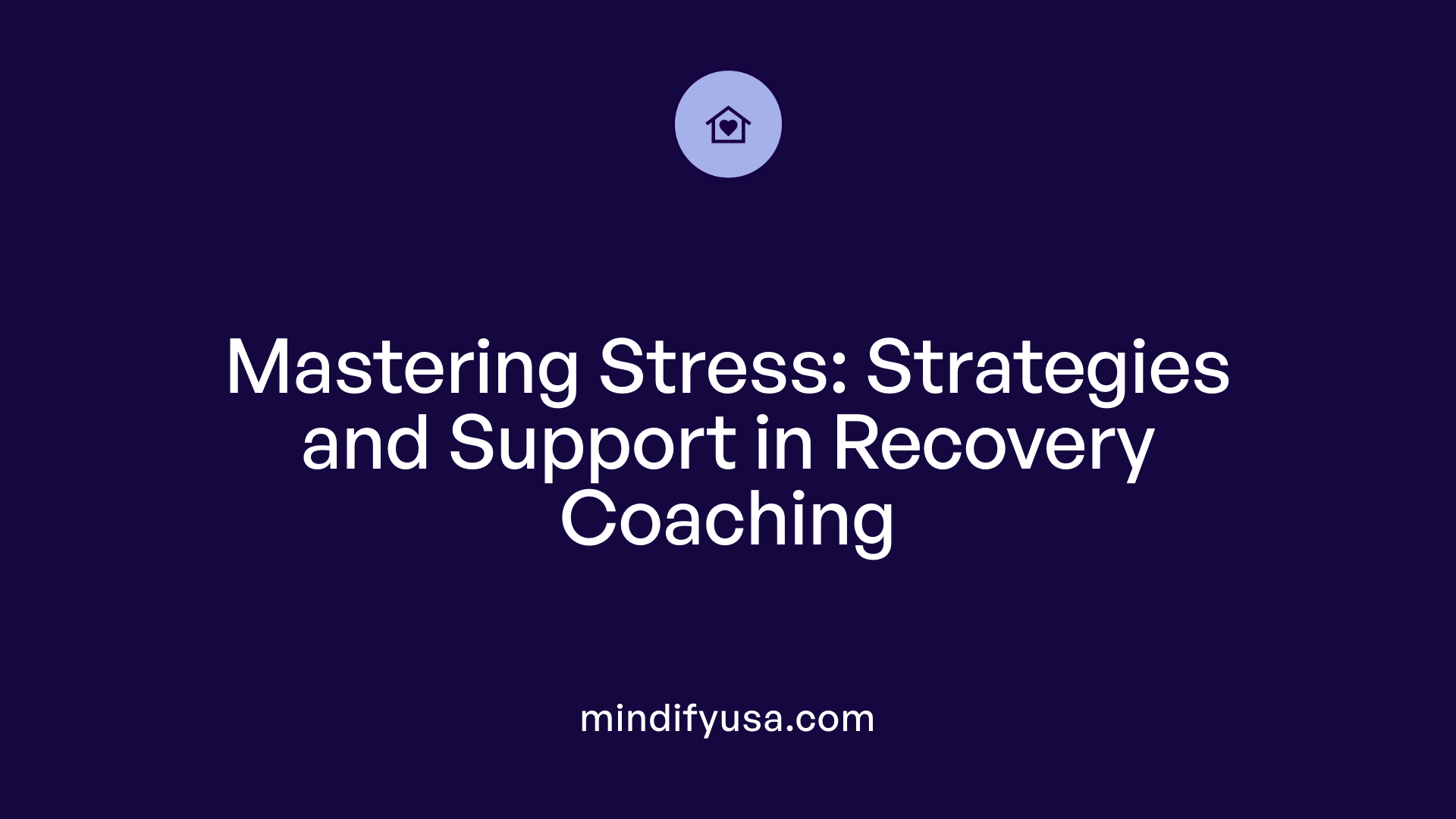
How does recovery coaching assist in reducing stress and overcoming triggers during recovery?
Recovery coaching plays a vital role in helping individuals manage stress and navigate triggers that could lead to relapse. Coaches work closely with clients to develop personalized coping strategies, including mindfulness exercises, relaxation techniques, and effective time management skills. These tools help mitigate emotional and psychological strain, promoting a sense of calm and control.
Building self-awareness is another cornerstone of recovery coaching. Techniques like meditation and deep breathing enable clients to recognize early signs of stress and emotional upheaval. Coaches also emphasize the importance of establishing a robust support network, involving trusted friends, family, and support groups, which bolster emotional resilience.
Adopting a healthy lifestyle is essential for sustained stress management. Recovery coaches encourage regular physical activity, balanced nutrition, and adequate sleep—all of which contribute to overall well-being and resilience against stressors. Furthermore, coaching involves identifying potential triggers—whether painful memories, stressful events, or environmental cues—and developing proactive strategies to avoid or confront them.
Through these combined efforts, recovery coaching helps individuals foster emotional stability, reduce the likelihood of relapse, and build lasting resilience. Personal growth, improved coping mechanisms, and a structured approach to stress management empower clients to maintain long-term sobriety and mental health.
Recovery Coaching Compared with Traditional Mental Health Services
How does recovery coaching differ from other mental health services, and what are its unique benefits?
Recovery coaching stands apart from conventional mental health treatments because it adopts a more peer-based and action-oriented approach. While therapy and clinical services often focus on diagnosing mental health conditions, exploring past traumas, and providing emotional processing, recovery coaching emphasizes practical steps and future goals.
A recovery coach typically assists individuals in developing tools to handle everyday challenges, such as managing stress, avoiding triggers, and making lifestyle changes conducive to sustained recovery. Coaches usually meet 2-3 times weekly, delivering ongoing motivation, accountability, and resource support. Unlike therapists, they do not diagnose or treat mental illnesses but focus on maintaining motivation and reinforcing positive routines.
Practical and action-oriented support
Recovery coaches help clients build skills like time management, self-confidence, and confronting negative thoughts. They tailor their strategies to individual obstacles, whether it involves handling cravings, establishing healthy routines, or reconnecting with community support systems.
This support is especially beneficial for individuals in early recovery or those who have stabilized but still require regular encouragement. Coaches also help in harm reduction, supporting those pursuing non-abstinence recovery goals, and preparing relapse prevention plans.
Accessibility and flexibility
One significant advantage of recovery coaching is its accessibility. It can be delivered in various places, including in-person, over the phone, or via online platforms, making it highly flexible to fit clients' schedules. The services are open to everyone, not just former patients of specific clinics or programs, allowing a broader reach.
Typically, coaching involves practical follow-ups such as monitoring progress through drug tests, connecting clients to community resources, and providing ongoing encouragement. This makes recovery coaching a readily available addition to traditional treatment, adaptable to individual needs.
Complementary roles
Recovery coaching is designed to work alongside mental health services or as a standalone support. It complements clinical treatment by focusing on real-time problem-solving, goal setting, and lifestyle management.
While therapists handle emotional healing, recovery coaches assist with day-to-day coping skills, habit formation, and social integration. This dual approach can enhance overall recovery outcomes by addressing both emotional and practical aspects.
Recovery coaching's unique benefits include increased motivation, real-time accountability, improved life skills, and better resource connection. It provides a personalized pathway that encourages resilience, reinforces recovery efforts, and fosters personal growth—making it an indispensable tool in the comprehensive support of individuals on their recovery journey.
Promotion of Sobriety, Resilience, and Emotional Well-Being
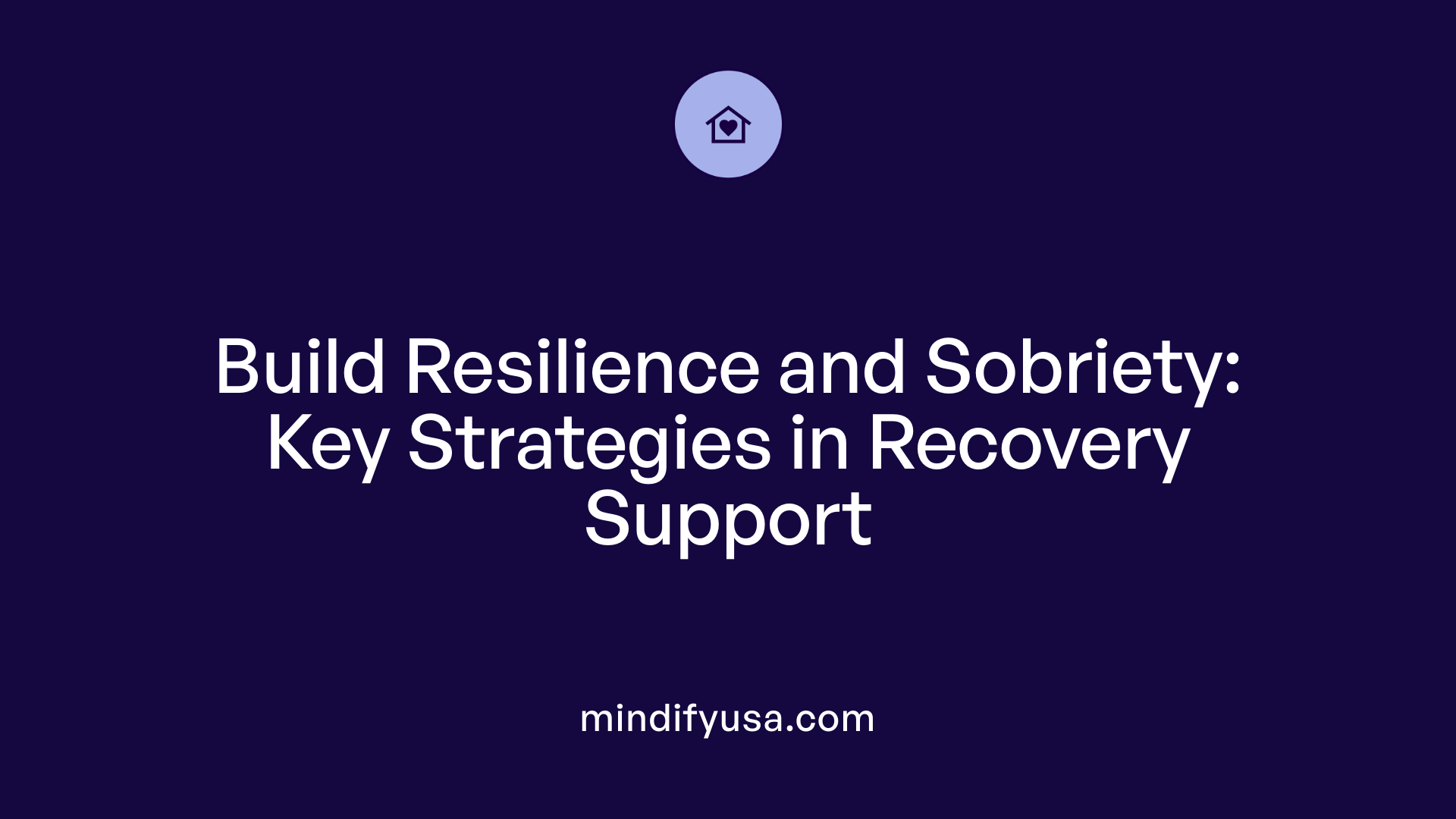
Building recovery capital
Recovery coaching plays an essential role in helping individuals build recovery capital—the resources and strengths necessary for long-term sobriety. Coaches assist clients in developing practical skills such as routine setting, self-confidence, and confronting negative self-talk. Many coaches have personal experience with recovery, which allows them to relate empathetically while guiding clients through challenges. They connect individuals to vital resources like support groups, job opportunities, and healthcare services, creating a strong foundation for resilience.
Personalized support and tools
Recovery coaches offer tailored strategies to meet each person's unique needs. They work with clients to identify triggers, manage cravings, and develop coping skills to handle stress and setbacks effectively. Techniques such as mindfulness, cognitive-behavioral approaches, and stress management practices—like regular exercise, adequate sleep, and gratitude—are integrated into personalized plans. Coaches also help in building healthy routines, improving self-care, and fostering emotional strength, which are crucial for maintaining sobriety and mental resilience.
Community engagement
Engagement with community and social support networks significantly bolsters recovery efforts. Coaches encourage participation in local support groups, community activities, and support workshops, reducing feelings of isolation. The relationship with a recovery coach helps normalize struggles and promotes a sense of belonging, which enhances emotional well-being. By fostering community connections, coaching not only supports sobriety but also promotes resilience, positive mental health, and overall life satisfaction.
Key Phases and Processes in Recovery Coaching for Stress and Mental Health
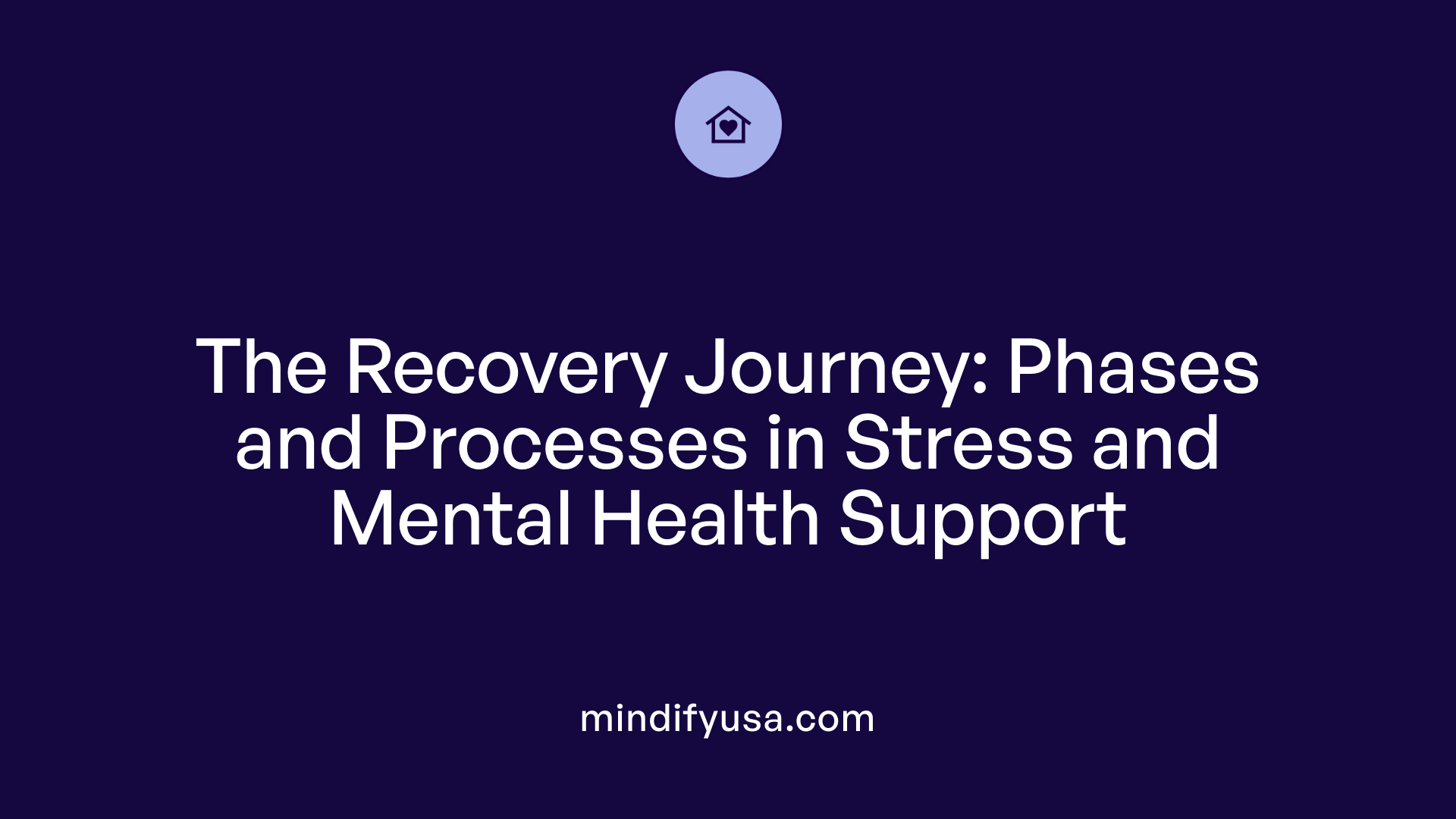
Initial assessment
The first step in recovery coaching for stress and mental health is establishing a strong foundation through active listening and motivational interviewing. During this phase, the coach works to understand the individual’s unique strengths, challenges, and personal goals. This includes identifying sources of stress, triggers, and existing coping skills. The assessment helps to build rapport, fosters trust, and provides crucial insights into what strategies are most suitable for the person's recovery journey.
Goal setting and planning
After understanding the individual's needs, the coach collaborates with them to set realistic, personalized goals. These goals may include developing better stress management techniques, improving daily routines, or enhancing emotional resilience. The coach helps create a tailored recovery plan that addresses barriers, promotes empowerment, and aligns with the individual’s values and lifestyle. This planning stage emphasizes building practical skills such as mindfulness, self-care routines, and stress reduction techniques.
Implementation and support
With a clear plan in place, the coach guides the individual through putting strategies into action. Regular check-ins, either in person, virtually, or via phone, provide ongoing support and accountability. During this phase, the coach encourages the adoption of healthy habits like regular exercise, proper sleep, and participation in support groups. The coaching process is flexible and responsive, focusing on motivation, problem-solving, and boosting confidence to handle stressful situations effectively.
Monitoring and relapse prevention
As progress is made, continuous monitoring of the individual’s mental health and stress levels is vital. The coach tracks signs of improvement and identifies early warning signs of setbacks or relapse. Together, they review and adjust strategies to sustain progress and prevent future relapses. This long-term focus on resilience, combined with fostering a sense of control and self-efficacy, helps maintain mental well-being over time.
Throughout all these phases, recovery coaching remains a holistic, person-centered process. It recognizes that recovery from stress and mental health challenges is non-linear and personalized, emphasizing hope, empowerment, and long-term resilience.
Supporting Overcoming Addiction and Challenges with Recovery Coaching
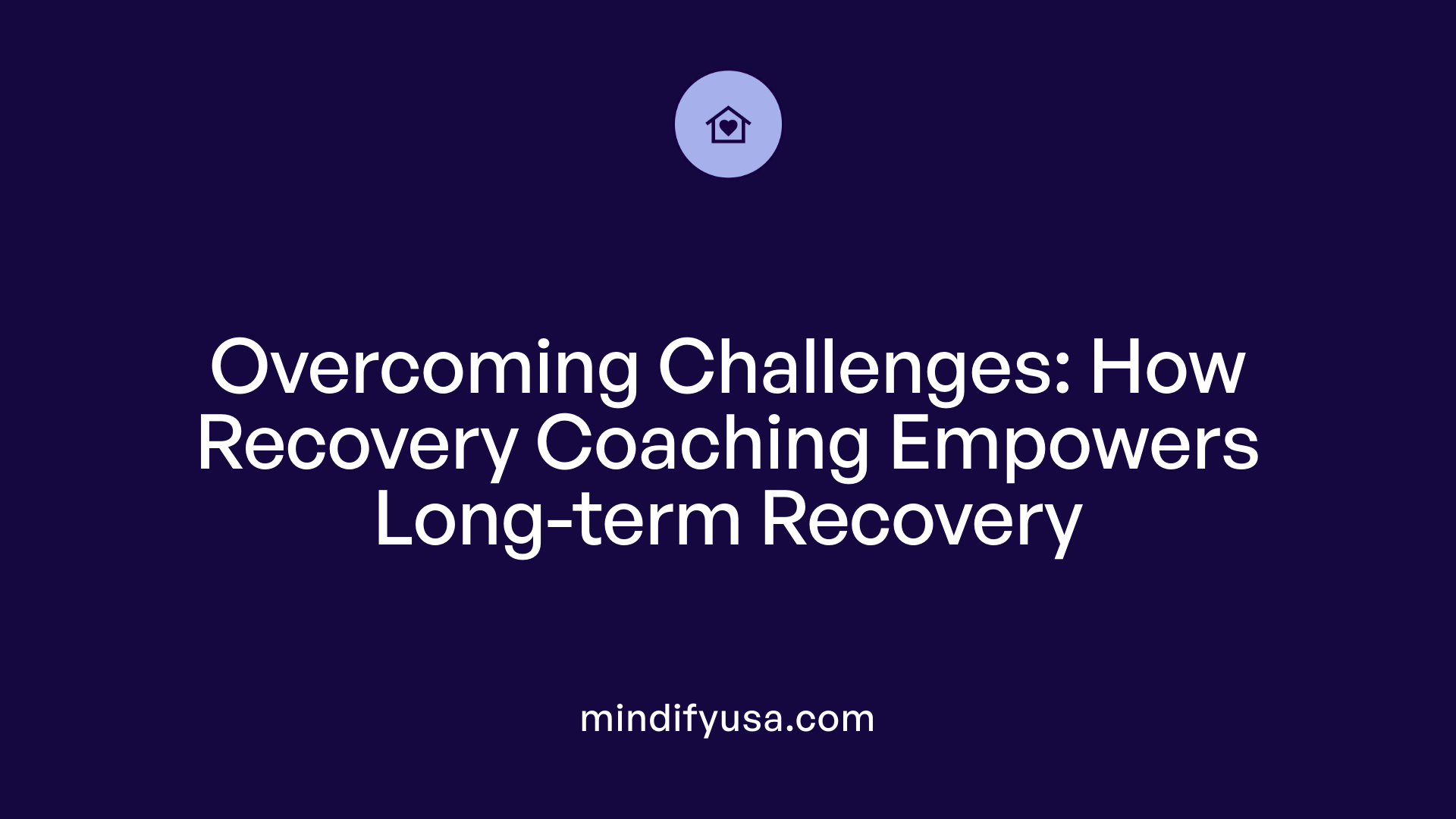
How does recovery coaching support individuals in overcoming addiction and mental health challenges?
Recovery coaching plays a vital role in helping individuals navigate the complex journey of overcoming addiction and mental health issues. Coaches offer personalized strategies tailored to each person's unique situation, providing emotional encouragement and practical support along the way.
A key aspect of recovery coaching is managing triggers and cravings, which are often immediate obstacles for those in recovery. Coaches help clients identify potential triggers, such as stressful events or memories, and develop customized plans to confront and cope with them effectively. This proactive approach helps prevent relapse and enhances resilience.
Moreover, recovery coaches assist in navigating support resources that might be overwhelming or difficult to access independently, including housing, employment, healthcare, and community services. They serve as guides, connecting individuals with necessary programs and support networks, and ensuring continuity of care.
While clinical treatments are essential, recovery coaching offers non-clinical, ongoing support that emphasizes empowerment and motivation. Coaches work to build confidence, establish achievable goals, and foster a sense of accountability. They encourage clients to adopt healthier lifestyle practices, such as stress reduction techniques, routine development, and engaging in meaningful activities.
Most recovery coaches have personal recovery experience, which helps them empathize deeply with clients' challenges and offer relatable guidance. They use techniques like motivational interviewing, solution-focused therapy, mindfulness, and problem-solving to enhance mental well-being.
Overall, recovery coaching helps individuals develop coping skills, maintain motivation, and build a supportive environment for long-term wellness. It complements traditional treatments, creating a holistic approach that fosters sustainable recovery and improved quality of life.
Fostering Long-Term Recovery and Mental Wellness
Recovery coaching plays a pivotal role in supporting adults to manage stress, overcome triggers, and build resilience, ultimately fostering long-term recovery and mental wellness. By emphasizing personalized support, behavioral change, and community engagement, this non-clinical service bridges gaps between formal treatment and everyday life. With its focus on empowering individuals, recovery coaching not only promotes sobriety but also enhances emotional well-being and personal growth, making it an invaluable resource for adults navigating the complexities of recovery and stress management.
References
- The Benefits of a Recovery Coach | Psychology Today
- Find a Sober Coach - Hazelden Betty Ford Foundation
- Managing Stress in Recovery - Prescott House
- Five Ways Working With A Recovery Coach Can Be Helpful
- Managing Stress | Mental Health - CDC
- How To Find the Right Recovery Coach - Mind Body Optimization
- Do I Need Mental Health Coaching? - Active Recovery Companions






































































































